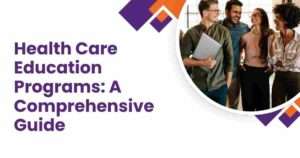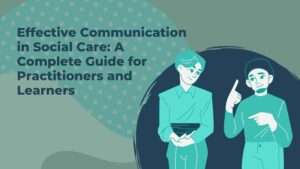Introduction to Access to Higher Education in Health
Access to Higher Education (HE) diplomas are designed to prepare individuals who do not have traditional qualifications, such as A-levels, for study at university. The Access to Higher Education Health diploma specifically caters to students who wish to pursue careers in health-related fields. This diploma offers a structured pathway for adult learners, career changers, and those returning to education, enabling them to progress to university-level studies in areas such as nursing, midwifery, physiotherapy, and more.
Why Choose Access to Higher Education Health?
The Access to Higher Education Health diploma is popular among learners who aspire to enter the healthcare profession but lack the academic qualifications to apply for university. Key reasons for choosing this pathway include:
- Accessibility: No prior qualifications are needed, making it ideal for mature learners.
- Affordability: The courses are often eligible for financial support or Advanced Learner Loans.
- Flexibility: Many providers offer part-time, evening, or online classes to accommodate working students.
- Career-Oriented Curriculum: The diploma provides focused content that prepares students for healthcare-related degrees.
Structure and Content of the Access to Higher Education Health Diploma
The curriculum is typically structured into units that combine subject-specific knowledge with academic skills. Common subject areas include:
- Biology: Human anatomy, physiology, disease, and cell biology.
- Health Studies: Public health, health promotion, healthcare systems.
- Psychology: Mental health, behavior, development, and cognition.
- Sociology: Social influences on health, inequality, demographics.
- Study Skills: Essay writing, critical thinking, referencing, exam preparation.
Each unit is assessed through coursework, assignments, and sometimes exams. The course is graded with credits awarded, and a full diploma usually includes 60 credits, with at least 45 at Level 3.
Entry Requirements
While the course is designed to be inclusive, some entry requirements may include:
- Minimum age (typically 19+ years old)
- Basic literacy and numeracy skills (equivalent to GCSE Level)
- Commitment to learning and attendance
- Interview or initial assessment with the provider
Progression Routes and Career Opportunities
Upon successful completion of the diploma, learners can apply for a range of undergraduate degrees. Common progression routes include:
- Nursing (Adult, Child, Mental Health, Learning Disability)
- Midwifery
- Physiotherapy
- Occupational Therapy
- Radiography
- Paramedic Science
- Social Work
- Public Health
Universities typically accept Access to HE diplomas as equivalent to A-levels, making them a strong alternative for gaining entry into degree-level education.
Recognition by Universities
The diploma is widely recognized by UK universities. Learners should verify with individual universities whether their Access course is accepted for the desired degree. UCAS points are not assigned to Access diplomas, but universities evaluate them based on grades and credits earned.
Study Modes: Full-Time, Part-Time, Online
Many institutions offer multiple study formats:
- Full-time (typically 1 year)
- Part-time (2 years)
- Online or Blended Learning (flexible, ideal for distance learners)
Online learning platforms provide interactive materials, virtual tutoring, and community forums to support remote learners.
Financial Support and Advanced Learner Loans
Students aged 19 and over may qualify for Advanced Learner Loans, which cover tuition fees. If the student goes on to complete a higher education course, the loan may be written off. Additional financial assistance may include:
- Childcare support
- Travel grants
- Bursaries
- Disabled Students’ Allowances (DSAs)
Challenges and How to Overcome Them
While rewarding, the Access to HE Health diploma can be demanding. Common challenges include:
- Balancing study with work/family
- Returning to study after a long break
- Keeping up with academic expectations
Tips for success:
- Develop a consistent study schedule
- Seek academic support from tutors and peers
- Use available student support services
- Practice time management and self-care
Who Should Consider the Access to Higher Education Health Diploma?
This course is ideal for:
- Adult learners seeking a career change into healthcare
- Individuals returning to education after a gap
- Students without A-levels but committed to university study
- Care assistants or healthcare workers aiming for promotion
Tips for Success in the Access to HE Health Course
- Attend all classes and engage actively
- Complete assignments on time
- Use academic resources such as libraries and study guides
- Form study groups to discuss key topics
- Stay organized with planners and digital tools
Real Student Stories
Many students have transformed their lives through the Access diploma. Testimonials often highlight the empowering nature of the course and the support from tutors. Former students frequently report improved confidence, clearer career paths, and successful university admission.
How to Apply
Applications are made directly through the college or training provider offering the course. Steps typically include:
- Filling out an application form
- Attending an interview or assessment
- Providing ID and educational background
- Securing funding or loan approval
Conclusion
The Access to Higher Education Health diploma is a vital stepping stone for individuals who aspire to join the healthcare profession but lack traditional qualifications. It combines academic preparation with personal development, paving the way for entry into university and ultimately, a fulfilling healthcare career. By providing flexible learning options, financial support, and recognized qualifications, it opens doors to higher education and new professional opportunities.
Whether you’re a mature learner, someone seeking a career change, or a working healthcare assistant ready to advance, the Access to HE Health diploma can set you on a transformative journey toward a degree and a rewarding job in health and social care.
Read More: BTEC National Diploma Health and Social Care







